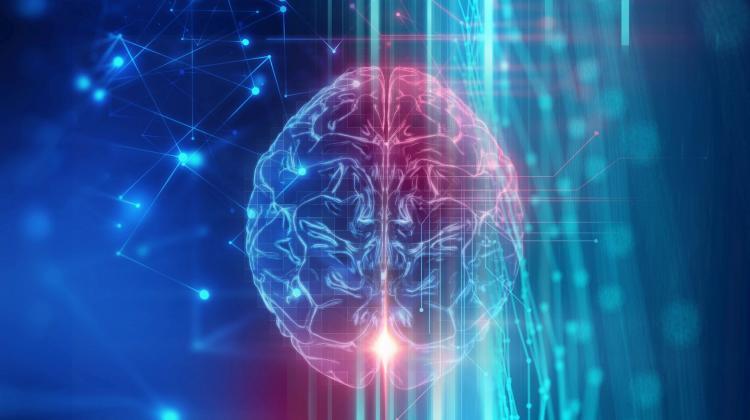A gamer`s brain is different from other brains
 Photo: Fotolia
Photo: Fotolia
People who play RTS games have better developed connections between the areas of the brain that are responsible for visual and spatial abilities as well as a better developed area responsible for automatic movements, according to research of psychologists from the SWPS University.
The brain structure of an avid gamer differs from the brain of a person who does not play computer games often, according to research carried out by psychologists from the SWPS University of Social Sciences and Humanities. The university informed about the research in a press release.
The task the researchers set for themselves was to check what changes occur in the brains of people who intensively play RTS (Real Time Strategy) games and how this activity is related to the changes observed in their behaviour. Psychologist Dr. Natalia Kowalczyk explains that the main goal of the study was the analysis of differences in cognitive functioning (skills that allow us to explore the surroundings, such as attention, memory or reasoning) and the brain structure of avid gamers compared to people who do not play games intensively (in the study, those people played an average of two hours per week).
The subjects in the two-year study conducted by Dr. Natalia Kowalczyk and a team of researchers from the University of Social Sciences and Humanities were 31 gamers who spent at least six hours a week in front of the screen and at least 60 percent of that time playing Starcraft II. The control group was the same number of non-gamers, who spent less than six hours a week playing strategic games.
"The most important discovery was the observation that the group of gamers, compared to people who played games less often, had more nerve fibres connecting the parietal and occipital areas of the brain. These areas are involved in the processing of visual and spatial information" - explains Dr. Kowalczyk, quoted in the press release. "In addition, our research has shown a correlation between the time spent playing RTS games and the intensity of observed changes" - she adds.
Neuronal connections between different parts of the brain were examined by means of magnetic resonance, while the evaluation of the volume of grey matter in the group of gamers and the control group was enabled by Voxel-based morphometry analysis. Researchers combined magnetic resonance measurement results with a multi-aspect assessment of cognitive functioning, including such processes as memory, attention or sensitivity to disruptive stimuli.
Playing RTS games involves a lot of complex mental functions: from the ability to simultaneously monitor several fast-moving objects, through constant attention and alertness, to working memory (refreshing information, switching between different tasks and planning activities).
Dr. Kowalczyk emphasizes that computer games are not only a unique tool to study human cognitive functioning, but above all to understand the brain neuroplasticity mechanisms (the ability of the nervous system to adapt to environmental requirements). In this context, they also represent a potential measure to counteract the aging processes or rebuild some cognitive functions disrupted, for example, by brain damage.
"Thanks to research such as ours, it is possible to use the acquired knowledge about human behaviour under the influence of games to create tools based on computer games for rehabilitation and educational programs" - emphasises the researcher.
Dr. Kowalczyk admits that although she considers the results very valuable, they are only a prelude to further research. "One of the problems of comparative research (...) is that we cannot say with certainty whether the observed differences result from the undertaken activity, or maybe people with a specific brain structure simply prefer playing a certain type of games" - she says.
The article describing the results of Dr. Kowalczyk`s research appeared in the journal "Human Brain Mapping" (https://doi.org/10.1002/hbm.24208).
A team of scientists from the SWPS University under the supervision of Prof. Aneta Brzezicka is planning to develop the topic of brain neuroplasticity under the influence of video games in more advanced training studies. They will be carried out as part of the project Trenuj Mózg (Train Your Brain, http://trenujmozg.pl)
PAP - Science in Poland
tr. RL
kflo/ ekr/ kap/
Przed dodaniem komentarza prosimy o zapoznanie z Regulaminem forum serwisu Nauka w Polsce.














